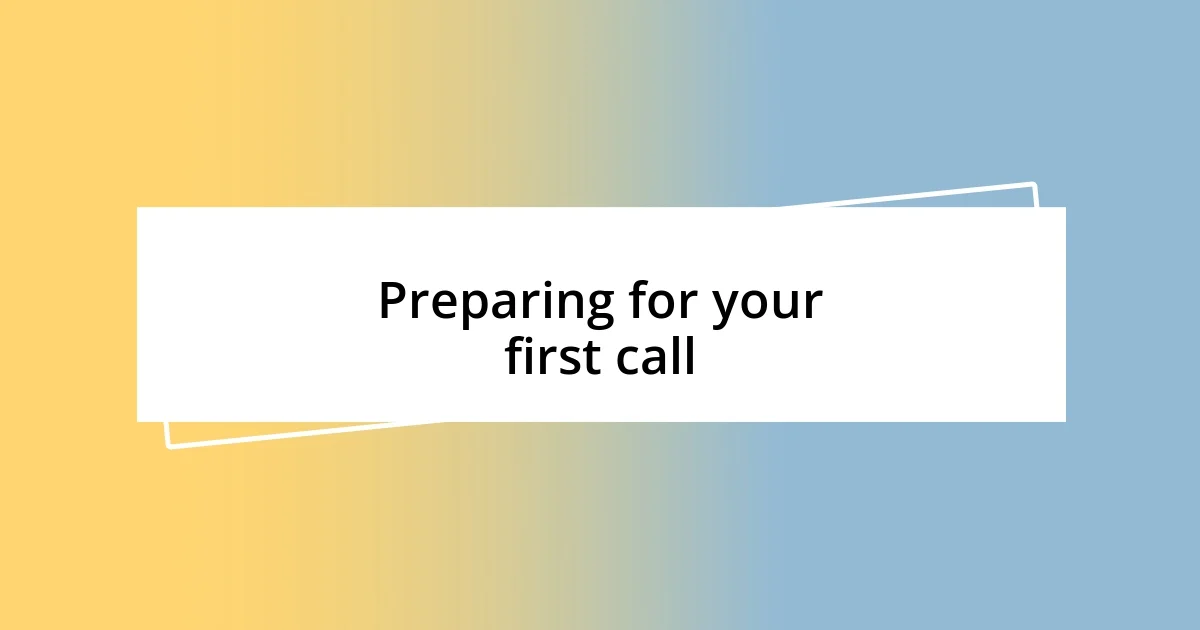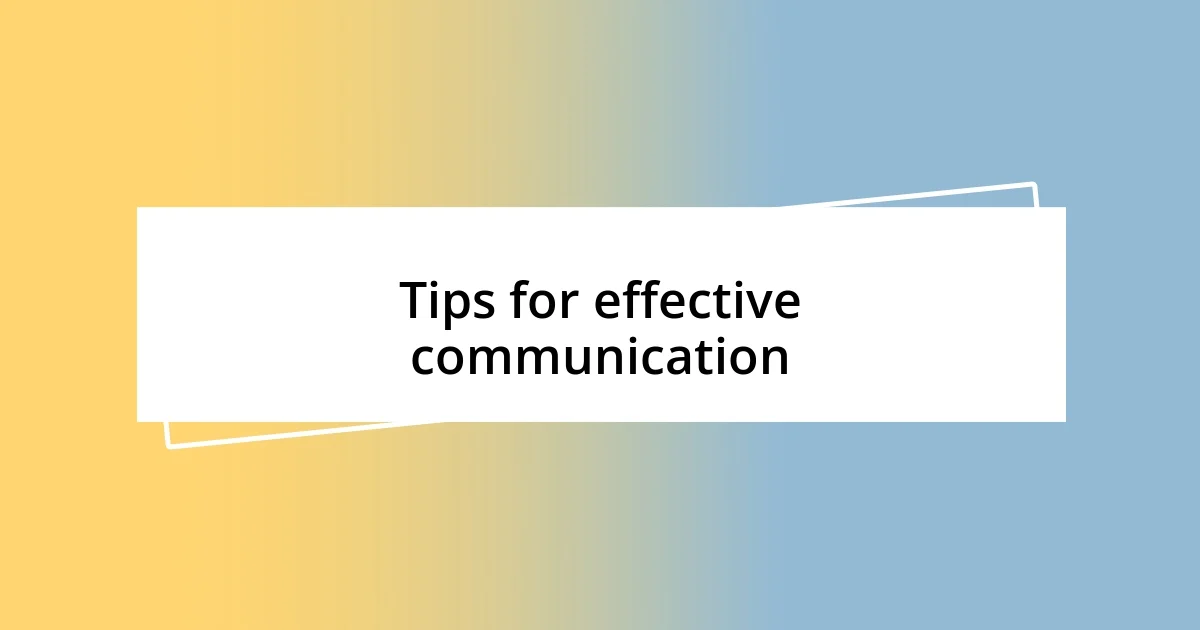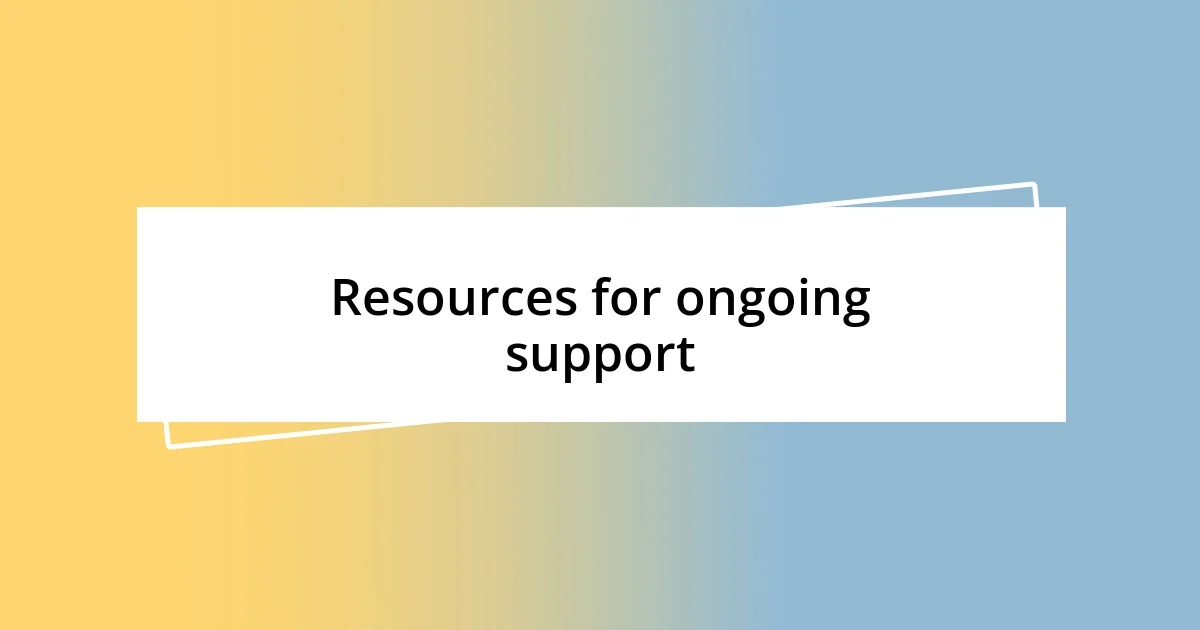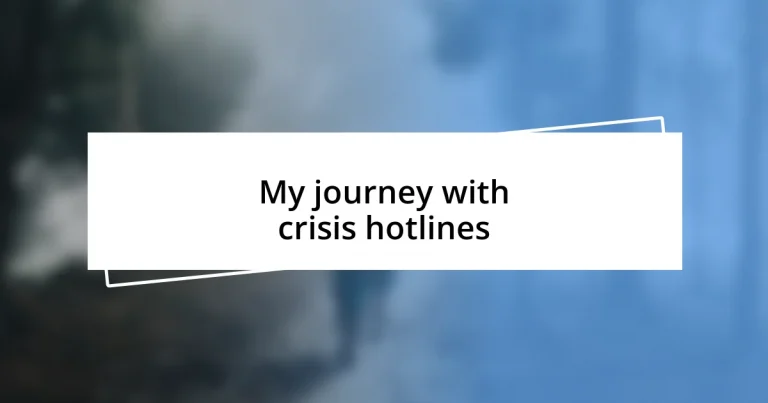Key takeaways:
- Preparation is crucial before a crisis call; jotting down thoughts can provide clarity and ease anxiety.
- Effective communication involves being clear, practicing active listening, and expressing emotions honestly to foster connection.
- Post-call support can be found through local resources, online forums, and self-care practices like journaling to maintain emotional well-being.

Preparing for your first call
Preparing for your first call can feel daunting, but it’s natural to have those jitters. I remember my first experience vividly—I’d been rehearsing the conversation in my head, grappling with a mix of anxiety and hope. Have you ever felt so overwhelmed that just picking up the phone seemed like climbing a mountain? The truth is, many people share that apprehension.
Before making the call, it can be helpful to gather your thoughts. I found it useful to jot down what I wanted to discuss, creating a sort of roadmap for our conversation. This practice not only eased my nerves but also helped me articulate my feelings better. Have you thought about what you truly want to communicate? Writing it down can create clarity and focus, transforming an intimidating process into a manageable one.
Lastly, remember that the person on the other end is there to listen and support you. I learned that vulnerability is a strength—it’s okay to express what’s bothering you. Isn’t it liberating to realize that you’re not alone in your struggles? Engaging with a hotline can be a stepping stone toward healing, and taking that first step is incredibly brave.

Tips for effective communication
Effective communication during a crisis call is essential. I’ve found that being open and honest about my feelings creates a welcoming environment for dialogue. The first time I opened up about my struggles, I felt an immediate weight lift off my shoulders. It’s amazing what honesty can do—once I started sharing, I realized it was easier to connect with the listener.
Here are some tips to enhance your communication:
- Be Clear: Use straightforward language to express your thoughts and feelings. Avoid jargon or complicated phrases.
- Practice Active Listening: Take a moment to absorb what the other person is saying. It’s okay to pause before responding.
- Ask Questions: Clarifying any points can help you feel more engaged and understood. Don’t hesitate to seek more information.
- Stay Present: Focus on the conversation at hand. This helps to create an authentic exchange, making it easier to convey your emotions.
- Be Patient: It’s normal for emotions to be heightened in these discussions. Allow yourself time to think and breathe.

Resources for ongoing support
Finding ongoing support after reaching out to a crisis hotline can be invaluable. I remember feeling a bit lost once the call ended; it was as if I had stepped back into a familiar but daunting world. To maintain that momentum, connecting with local mental health resources or support groups can be a game-changer. Have you considered attending group sessions or therapy? Sharing experiences with others can foster a sense of community that underscores our shared struggles.
Online forums can also be a helpful resource for ongoing support. I found solace in platforms where people discuss their journeys, allowing me to both listen and contribute. It’s comforting to know that countless others are navigating similar paths. Engaging in these discussions can reinforce the feeling that you are not alone. Did you know that many organizations host virtual meetings for this exact purpose? These spaces can provide a continuous source of encouragement and understanding.
Don’t underestimate the power of self-care resources, either. Simple practices like journaling or mindfulness exercises can create a safe outlet for your emotions. I still find journaling to be therapeutic—it allows me to process my thoughts in a private setting. Have you tried incorporating these techniques into your daily routine? Small yet intentional actions can significantly enhance your emotional well-being, nurturing your journey beyond that initial crisis call.














